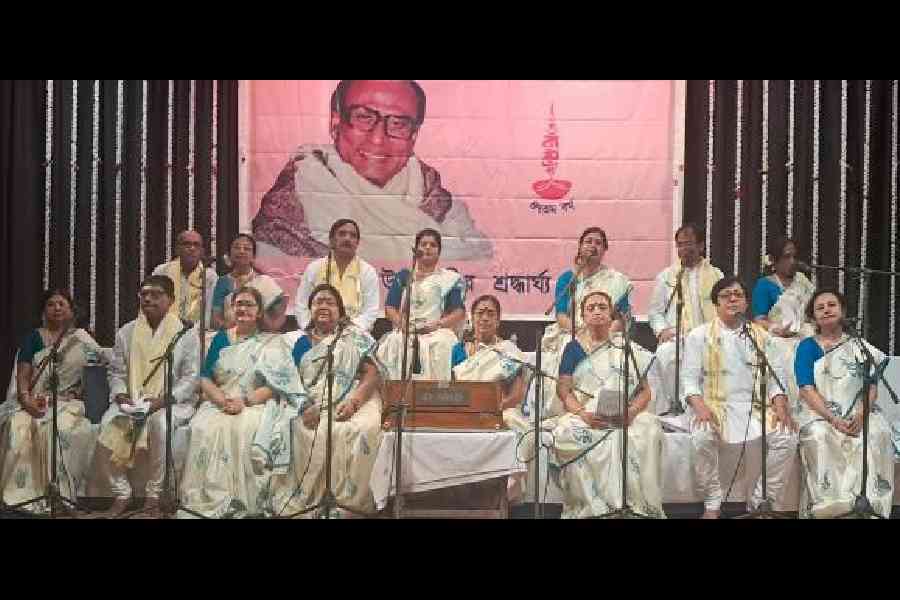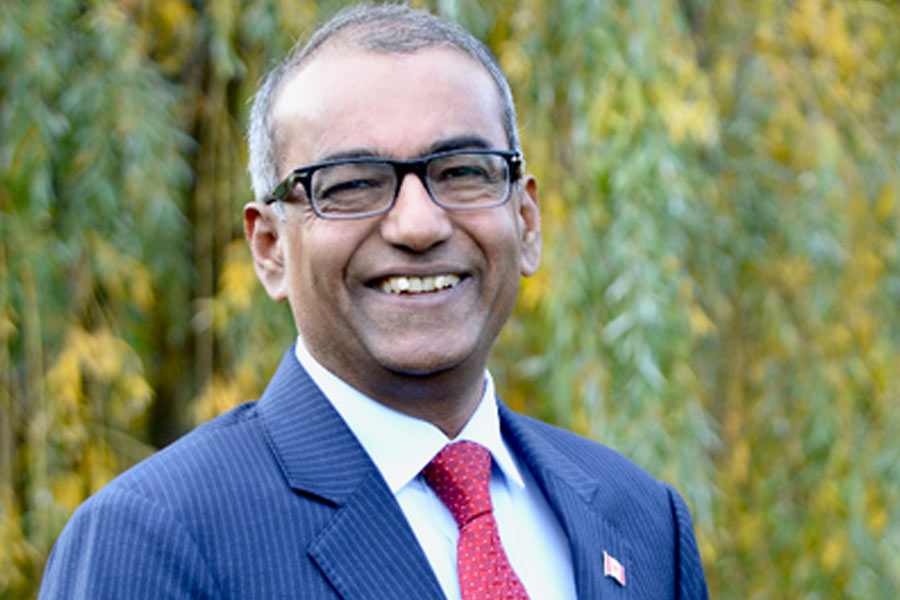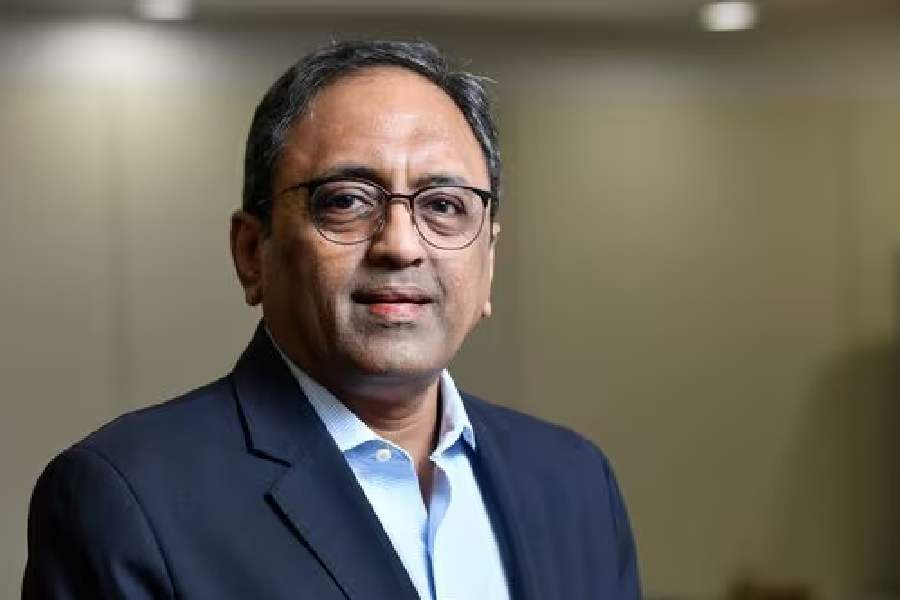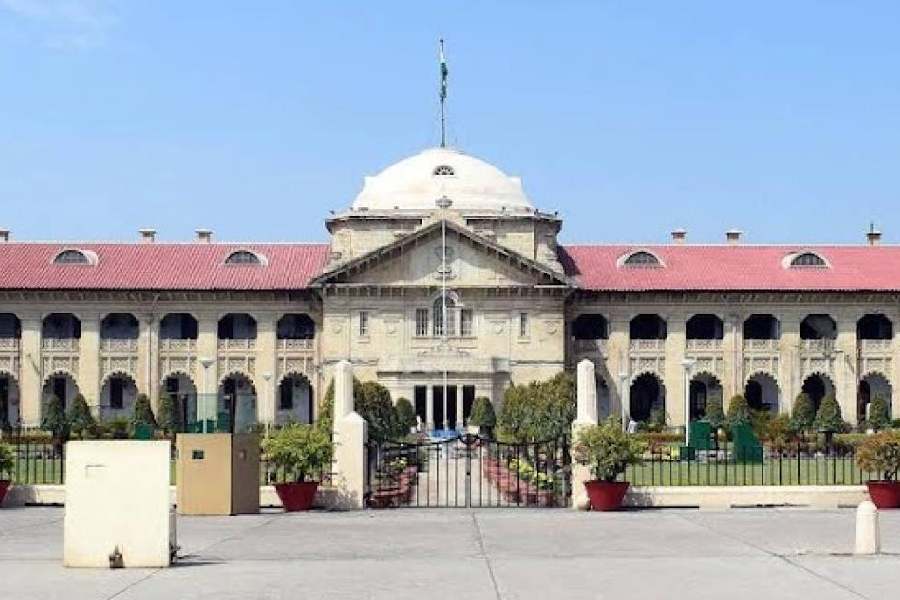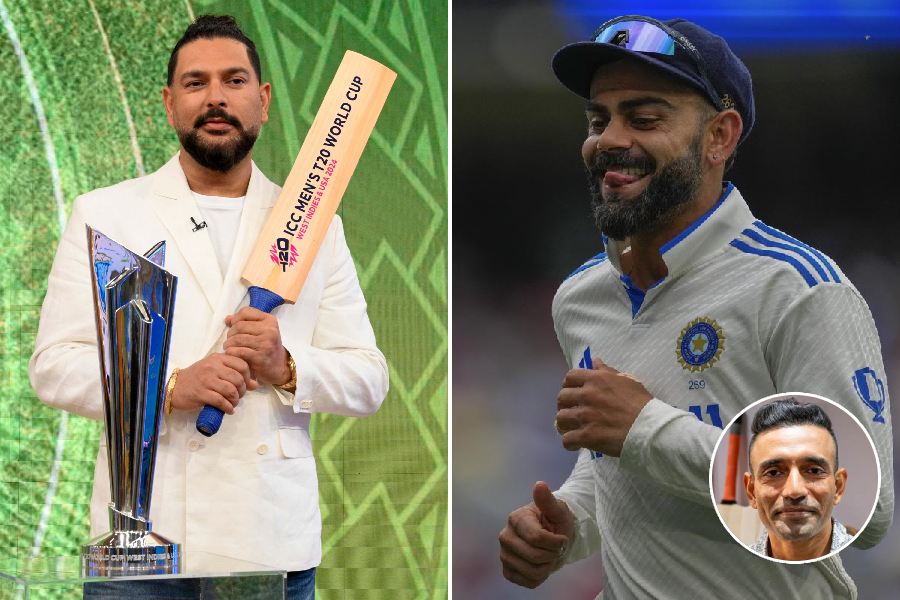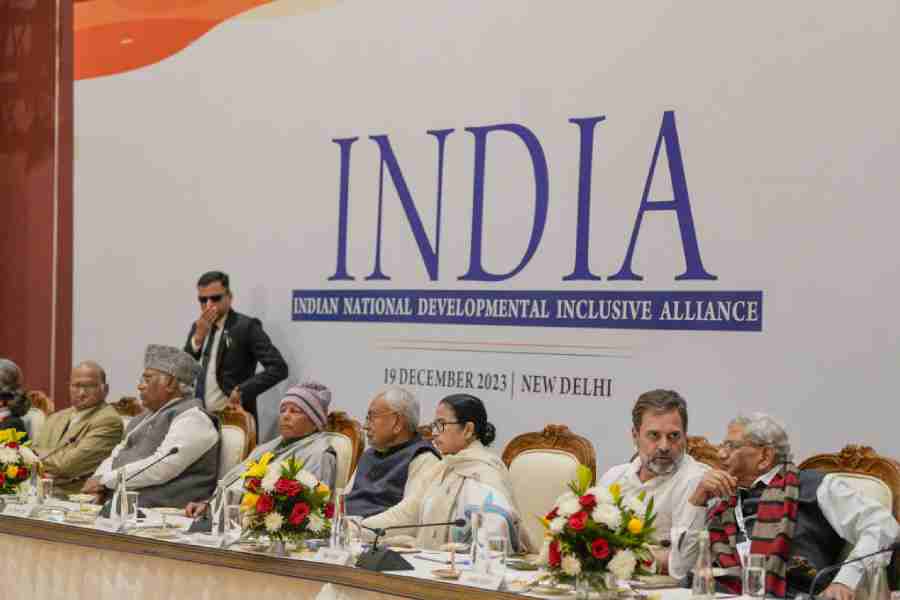A passionate football lover with no initial interest in music transformed into a versatile artist, whose voice infused life into numerous Tagore compositions and a composer.
This remarkable journey was unveiled when students of Uttarayani hosted a cultural show paying tribute to their guru Dwijen Mukherjee on his 98th birth anniversary at Rabindra Okakura Bhavan.
The musical evening unfolded in two phases. The first phase featured solo performances by renowned artists who shared their cherished memories of Mukherjee.
Rabindrasangeet was performed by singer Debasree Biswas, followed by Agnibha Bandyopadhyay. Bandyopadhyay reminisced about his long-standing association with “Dwijen jethu” through his uncle, music director Abhijit Bandyopadhyay. “I grew up listening to Dwijen jethu’s records. He and my uncle had many discussions regarding pitch and scale before arriving at decisions. I feel fortunate that Dwijen jethu sang songs for Akashvani under my direction." Bandyopadhyay emphasised the need for research on talented singers like Mukhopadhyay and then performed some evergreen songs from the 1970s.
Suman Panthi recalled how Mukherjee offered valuable tips on voice balance and recording at various occasions. “Dwijen kaku always said that the main task of a singer is to convey the message and emotion of the song through his performance,” he said.
Swapan Som remarked: “Dwijenda was an exemplary figure; his most important characteristic was his equal mastery over both Tagore songs and modern compositions, skilfully maintaining an exceptional balance between diverse genres.” Som enchanted the audience with his rendition of Ekdin phele jabo chole, followed by Hazar moner bhire, one of Abhijit Bandyopadhyay’s finest compositions.
Singer and doctor Sibaji Basu shared how his practice flourished after Mukherjee became his patient. “He was a man of rare personality,” he stated.
The second half of the show featured a dance and song presentation titled Kichu priti kichu smriti, based on the biography of Mukherjee’s musical journey over five decades.
It introduced the audience to Mukherjee’s contributions spanning six decades. It recounted how he unexpectedly decided to pursue music in his school days when friends enrolled him in a music contest after hearing him croon melodiously while tapping on his classroom desk. This led to his first medal and marked a turning point in his life.
His inaugural stage performance took place at Rammohon Library, solidifying his decision to pursue a career in music. A rare talent, he was inducted to the Visva-Bharati board for his mastery of Rabindrasangeet despite not being trained in Santiniketan himself.
In addition to receiving the Padma Bhushan and Sangeet Natak Akademi Award, Mukherjee also received the Best Male Playback Award in 1974 for the film Banpalashir Padabali on behalf of the Bengal Film Journalists’ Association.
He recorded over 1,600 songs in various languages and was invited to perform around the world. Notably, he received invitations from prominent figures such as President of Yugoslavia Marshal Tito and Prime Ministers Jawaharlal Nehru, Indira Gandhi and Manmohan Singh.
In 1975, he established Uttarayani in Salt Lake to spread the authentic form of Tagore's songs while experimenting with choral arrangements.
The songs in this segment were performed by Purnima Bhattacharya, Sonali Mukhopadhyay, Tultul Bhattacharya, and others. The dances led by Esha Goswami and her troupe — particularly the duet featuring Goswami and Ranjan Kumar Das to the song Adhara madhuri dhorechhi chhando bandhane — left a lasting impression.
Compere Mou Guha wove together special moments from Mukherjee’s life.
A drama festival recently took place at EZCC where all the actors were women. The Bidhannagar National Women’s Drama Festival was a five-day celebration that featured 150 women from 14 theatre groups.
The event was organised by the Salt Lake-based socio-cultural group ISPAT along with the ministry of cultural affairs, government of India.
The inauguration was attended by theatre personality Aloka Ganguly. “The cultural landscape has changed significantly after the pandemic, with entertainment increasingly getting confined to mobile devices, creating a cultural void. ISPAT aims to revive our cultural heritage and address social issues,” said secretary Ritesh Basak.
The festival opened with performances by Adwitia, a music group from Howrah, which presented songs from Tagore's dance drama Shapmochon. Chandernagore-based group Spandan performed two songs by charankabi Mukunda Das, whose ballads spread the Swadeshi movement to the villages of Bengal.
Students from Ashoknagar Vidyasagar Bani Bhaban Higher Secondary School presented a play titled Ami Ananya, addressing issues such as eve-teasing, human trafficking and child marriage. Written by alumni Siddhanta Chakraborty and directed by headmaster Monoj Ghosh, it was based on a true case of child marriage.
Girls from Jyotsnamoyee Balika Vidyalaya in Siliguri had also come to present Pohay Rajani, Jagichhe Janani, written by Amitabha Kanjilal and directed by Sharmistha Roy.
“There is an alarming trend these days of trivialising rape cases. This fuels crime against women. To protest objectifying women, we have included shocking scenes that evoke strong emotions,” said Kanjilal.
Bharati Kanjilal

